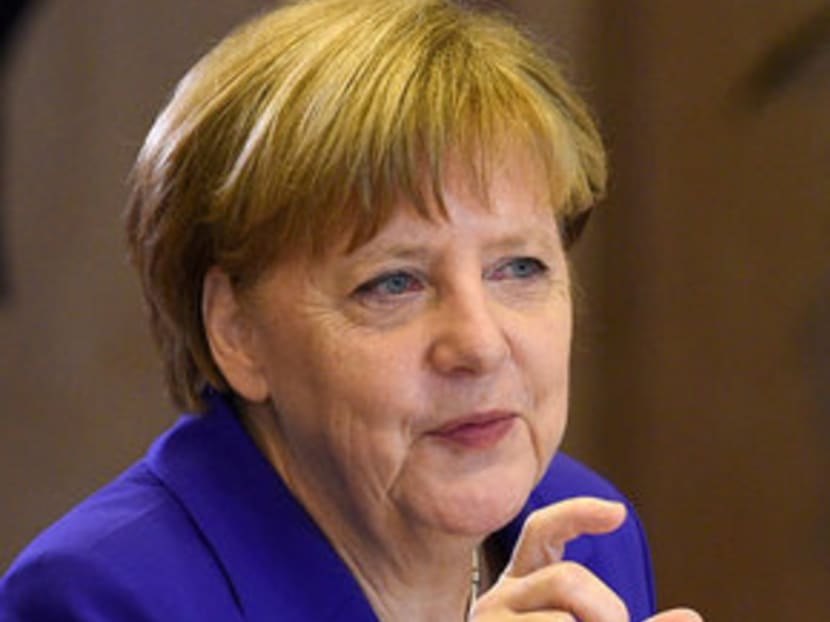Britain will pay heavy price for bolting, EU warns
BRUSSELS — European Union leaders agreed yesterday that Britain cannot have access to the single market after leaving the union without accepting the bloc’s rules on free movement, said EU President Donald Tusk.
BRUSSELS — European Union leaders agreed yesterday that Britain cannot have access to the single market after leaving the union without accepting the bloc’s rules on free movement, said EU President Donald Tusk.
“There will be no single market a la carte,” Mr Tusk told a news conference in Brussels after the 27 leaders met without British Prime Minister David Cameron.
“Leaders made it crystal clear today that access to the single market requires acceptance of all four freedoms including freedom of movement,” Mr Tusk added.
The 27 EU leaders will also hold a summit — without Britain — in Bratislava on Sept 16 to discuss further the fallout from Britain’s decision to leave the bloc, Mr Tusk said.
The summit will come just days after Britain’s ruling Conservative party is due to choose a successor to Mr Cameron, who resigned on Friday after his country voted in a referendum to leave the EU by 52 per cent to 48.
“This was a first exchange so it is too early to draw conclusions. This is why we started a political reflection with 27 states and we’ll meet on Sept 16 in Bratislava to continue our talks,” Mr Tusk said.
The former Polish Premier stressed that negotiations on Britain’s future relationship with the EU cannot start until it formally triggers the two-year process leading to a divorce.
Mr Cameron has said this is a task for his successor.
Highlighting the seismic shock from last week’s referendum, one person who was in Brussels however was Scottish First Minister Nicola Sturgeon, who said she was “utterly determined” to see Scotland remain in the EU.
Ms Sturgeon met yesterday morning with European Parliament president Martin Schulz and was to hold talks with European Commission president Jean-Claude Juncker later.
Britain “made the decision that it did. And this morning it looks like they aren’t sitting at the table any more”, said Mr Juncker as he arrived for the summit yesterday.
He had warned Britain a day earlier that it did not have “months to meditate” before triggering Article 50 — the EU treaty clause that begins the two-year withdrawal process — after Mr Cameron’s successor takes office in early September.
And German Chancellor Angela Merkel warned that London could not “cherry-pick” the terms of the exit negotiations.
Some in Brussels are concerned that giving Britain favourable divorce terms will spark a domino effect of others leaving the union, set up six decades ago to foster peace on the continent after World War II.
“We need more than ever a united Europe, in contrast to a disunited UK,” said Luxembourg’s Prime Minister Xavier Bettel yesterday.
Mr Cameron flew back to London after Tuesday’s summit, as Ms Sturgeon headed in the opposite direction to test the waters in Brussels for her country joining the bloc as a separate entity.
Scotland overwhelmingly backed “Remain” in last Thursday’s vote, and the combative Ms Sturgeon has said she was “utterly determined to preserve Scotland’s relationship and place within the EU”.
That may require a new referendum on Scottish independence, with Ms Sturgeon saying that the Britain from the last vote in 2014 “does not exist any more” following the Brexit vote.
Meanwhile, the race to choose a successor to Mr Cameron got under way yesterday, with former London Mayor and top “Leave” campaigner Boris Johnson tipped as the narrow frontrunner.
With turmoil surging through both of Britain’s main parties, defiant opposition Labour chief Jeremy Corbyn meanwhile faced a looming leadership challenge after last Thursday’s referendum.
Mr Johnson, who led the “Leave” campaign to victory, tops the opinion polls along with Interior Minister Theresa May for the Conservative leadership.
The party official opened nominations yesterday and both Mr Johnson and Ms May are expected to announce their bids today, before nominations close at noon.
The new leader, who will be chosen by a postal ballot of party members currently numbering around 150,000, is expected to be announced on Sept 9.
The political chaos was not confined to the ruling party, with opposition Labour leader Corbyn arming himself for battle against a huge majority of his own MPs.
Mr Corbyn was defeated by 172 to 40 in a non-binding no-confidence vote held by Labour lawmakers late on Tuesday, and speculation was mounting that a candidate would come forward and challenge him.
“It looks as though we will have a leadership election now,” said Corbyn loyalist and shadow finance minister John McDonnell yesterday.
Even Mr Cameron weighed in, telling Mr Corbyn “for heaven’s sake man, go!” during Parliament’s weekly Prime Minister’s Questions session. agencies







